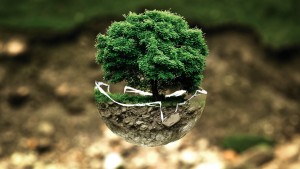Series: Sustainability and You
College Student vs. Farmers Market
by Michelle Sharkansky
Just like most other kids in the United States, one of my favorite things to have in the morning was a big bowl of sugary cereal most likely produced by General Mills. General Mills produces everyone’s childhood favorites like Trix, Lucky Charms, Reese’s Puffs, and Cheerios. I recently found out that General Mills also makes my favorite organic and vegan food bar, the Lara bar.
As I did more research on General Mills, I was disappointed to find out that they were one of the titan companies that fought against labeling of GMOs. GMO is an acronym for genetically modified organism; the term is used to describe organisms with chemically engineered DNA. Farmers use GMOs to alter the DNA of crops to withstand disease, weeds, insects and toxic pesticides. Studies have shown that pesticides can disrupt our endocrine system as well as damage the environment.
I decided to avoid spending money in super markets and instead spend money on local produce. My goal for the past two months was to spend the same amount of money on fruits and veggies as I would at my conventional super market. My experiment went as planned and I was able to buy around the same amount of produce with about twenty bucks a week.
That being said, I will no longer be shopping at the farmers market. It is hard to maintain ecological behaviors when they are difficult and unconventional, but that doesn’t mean you can’t adapt easier eco-friendly behaviors. Caring for the environment doesn’t mean I have to go to a farmers market on a weekly basis or bike everywhere.
Instead I will do more research on the companies I am purchasing my produce from. A good way to start learning about companies that fight GMO labeling is to visit JustLabelit.org, which has a list of companies that oppose GMO labeling and also show how much money these companies contribute to that cause. I think that it’s important to know that the information is there for us. Supporting good companies doesn’t mean growing our own veggies or visiting local markets, but just opening the browser on our phones.
